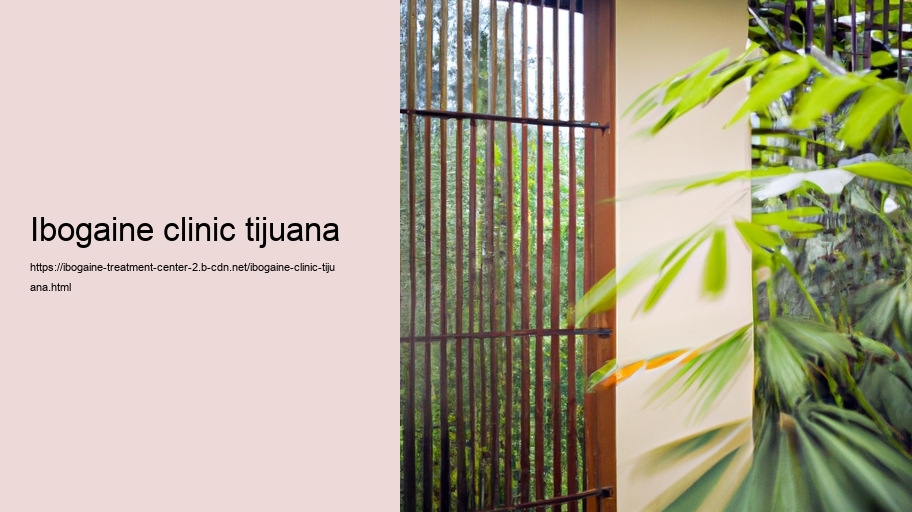Ibogaine Clinic Tijuana: A Beacon of Hope for Addiction Treatment
In the bustling border city of Tijuana, Mexico, a movement is growing that offers hope to those struggling with addiction. Amidst the vibrant culture and resilient spirit of this urban landscape lies an oasis of healing: the ibogaine clinic. Ibogaine, a psychoactive substance derived from the African iboga plant, has been gaining attention worldwide for its potential in treating various forms of addiction. The clinics in Tijuana have become a destination for individuals seeking an alternative approach to overcoming their dependencies.
The Journey Towards Healing
For many, the road to recovery begins with acknowledging the need for help. Addiction is a complex beast that can devastate lives and destroy families. Conventional treatment methods often provide support through therapy and medication-assisted treatments; however, some find these methods insufficient for achieving long-term sobriety. This is where ibogaine clinics come into play, offering a different path—a spiritual journey accompanied by medical oversight.
Understanding Ibogaine
Ibogaine works in a unique way by targeting the brain's neurotransmitter systems. It is particularly known for mitigating withdrawal symptoms from opioids and reducing cravings. Unlike other treatments that may require ongoing use of substitute medications like methadone or buprenorphine, ibogaine is administered as part of an intensive treatment program over several days.
The experience itself can be intense and introspective. Patients report going through a psychological voyage that brings insights into their addictive behaviors while also confronting past traumas that may be at the root of their substance abuse issues.
Safety and Regulation
While ibogaine shows promise, it's important to note that it remains unregulated and illegal in many countries, including the United States due to concerns about its safety profile and potential side effects. This legal status drives many Americans across the border to places like Tijuana where ibogaine therapy is permitted under supervision within licensed clinics.
Clinics in Tijuana prioritize patient safety by conducting thorough pre-treatment assessments which include medical evaluations to ensure candidates are suitable for treatment. Monitoring during the process is crucial since ibogainecan induce cardiac arrhythmias and other serious health risks if not managed properly.
A Multifaceted Approach
Successful recovery involves more than just addressing chemical dependency—it requires holistic healing. Recognizing this necessity, many ibogainecclinics incorporate additional therapeutic modalities such as counseling sessions, nutritional guidance, meditation practices, and aftercare planning into their programs.
These complementary therapies aim to bolster personal growth and empower patients to rebuild their lives post-treatment with new coping mechanisms and healthier habits.
The Community Impact
As word spreads about these innovative clinics in Tijuana, they attract people from all walks of life who share a common goal: liberation from addiction's grip. The community impact extends beyond individual transformations; it fosters cross-cultural exchanges between locals providing services and international visitors seeking them out.
Moreover, success stories emerging from these centers contribute valuable data towards understanding addiction better—potentially influencing future policies around drug rehabilitation strategies globally.
Ethical Considerations
With any pioneering medical treatment comes ethical considerations regarding accessibly equitable care along with safeguarding against exploitation or premature commercialization without adequate scientific backing. Ethical operators within this space strive not only for successful outcomes but also uphold standards ensuring informed consent respecting patient autonomy throughout their unconventional journey toward recovery.
Conclusion
Tijuanna’sibogaclinicssymbolize both innovation resilience face modern public health challenges specifically concerning substance abuse disorders—their existence testament humankind's continual quest effective compassionate systemscan heal broken spirits restore dignity those battling addictions landscape fraught stigma uncertainty offer beacon hope guided science empathy human connection Ultimately whether or not one chooses pursue such bold form therapy key understanding lies respect each individual path exploration self-discovery transformation available at these sanctuaries nestled within colorful tapestry Mexican culture heritage
